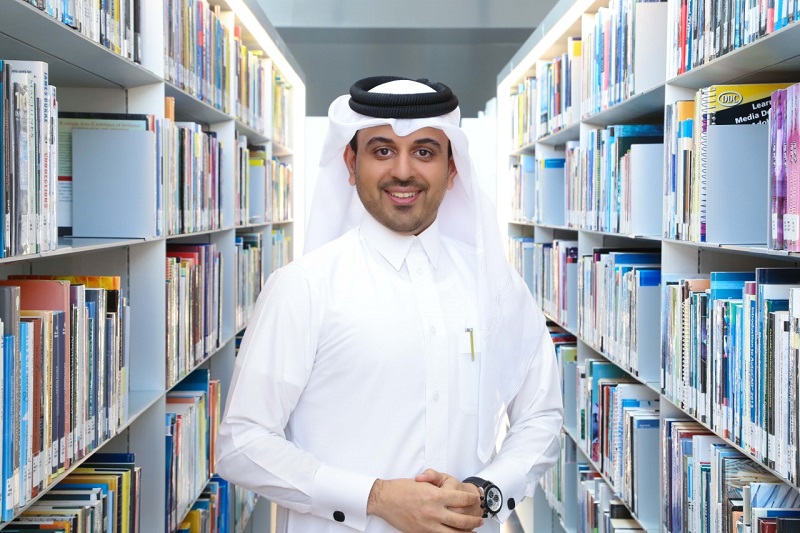
Young members of the Qatar National Library attending an online session.
Doha: Qatar National Library’s Young Adults’ Section focuses on a community often underserved by traditional libraries. Since its inception, the Library has made great efforts to cultivate the minds of the next generation, develop their skills, enrich their knowledge and prepare them to lead and succeed in their future endeavors, according to the Head of the Library’s Young Adults’ Section, Ahmed Al Malki.
“The Young Adults’ Library always strives to provide the best services to Qatar’s youth. The future of this country lies in their hands, and it is up to us to provide them with the tools to lead Qatar into the future,” he said.
Among such initiatives, Young Coaches, a series of 20 workshops on presentation, public speaking, voice interaction, and the use of presentation visual aids and software. Several talented public speakers participated, passing hints and tips to help the more than 150 young adult participants express themselves fluently and clearly.

Ahmed Al Malki
This year, the initiative has shifted to provide opportunities for young adults to play trainers’ role and teach their peers these skills. More than a dozen young people completed the training and became qualified to deliver several lectures and training workshops in schools and other places of learning.
“The idea of this initiative came as a natural extension of our series of activities to develop young adults’ skills and coach them in leadership capabilities such as presentation and public speaking,” said Al Malki.
Like everywhere else worldwide in the past year, the Library has been affected by the COVID-19 pandemic. However, the Young Adults’ team, like the rest of the Library, has successfully overcome the impact of the government’s lockdown measures. It launched an Instagram Live service to broadcast events, workshops, and activities and continue communicating with the Library’s young adult patrons. Other events included successfully hosting gatherings on the Microsoft Teams platform. These ranged from homework support groups and scientific lectures to chess club and writing groups and programming for special needs students.
Al Malki said, “We launched our online events early on during the COVID-19 outbreak because, at that time, students needed to have every tool available to continue their education even though schools were closed. The online interactive activities proved to be popular among many young people who managed, despite the lockdown, to attend the same events and lectures that used to be held inside the Library. The only difference now is that these sessions are completely online and remotely accessible.”
The Young Adults’ Library events cater to two distinct audiences - teachers and students ages 12 to 18. Teacher activities help educators recognise students’ talents, both evident and hidden, and nurture their skills. The Library also works with the Ministry of Education and Higher Education to assist teachers in government schools.
“We are currently collecting detailed data of students and their talents to create a database to help them reach their potential. We already have 80 participants, and our ambition is to support these students as they apply their creativity from their experiences in the Young Adults’ Library,” said Al Malki.
Programmes aimed at students go beyond just helping them with their homework assignments. In 2020, the Young Adults’ Library hosted a series of programmes and interactive meetings that helped high school students choose the right university specialisation based on their abilities and interests, which can affect their career path. The sessions were delivered by the Manager of Scholarship at Sidra Medicine, Khalifa Al Yafei, to 600 students from six schools.
Al Malki said, “We have put in place programmes and tests to assess students’ abilities and provide them with complete information about universities in Qatar and abroad, various majors at each university, and the expected job opportunities for each major. Mentors used this information to help students think clearly and make the right decision about their future. We also added standard tests to help students know their strengths and preferences.”
Educating young adults about global causes and issues is another critical component of preparing them for future leadership roles. Events such as the regular Science Book Forum and programmes about the UN’s Sustainable Development Goals teach some of the most important challenges facing every country. They show students how they can contribute to finding solutions.
As Qatar continues to grow as a tech and innovation hub, Al Malki is enthusiastic about the decade ahead and the important, comprehensive role the Library will play. “We will host science clubs and events that encourage the youth to embrace science, technology, engineering and math (STEM), pursue studies in these subjects at university, and undertake careers in innovative and creative fields,” he said.








